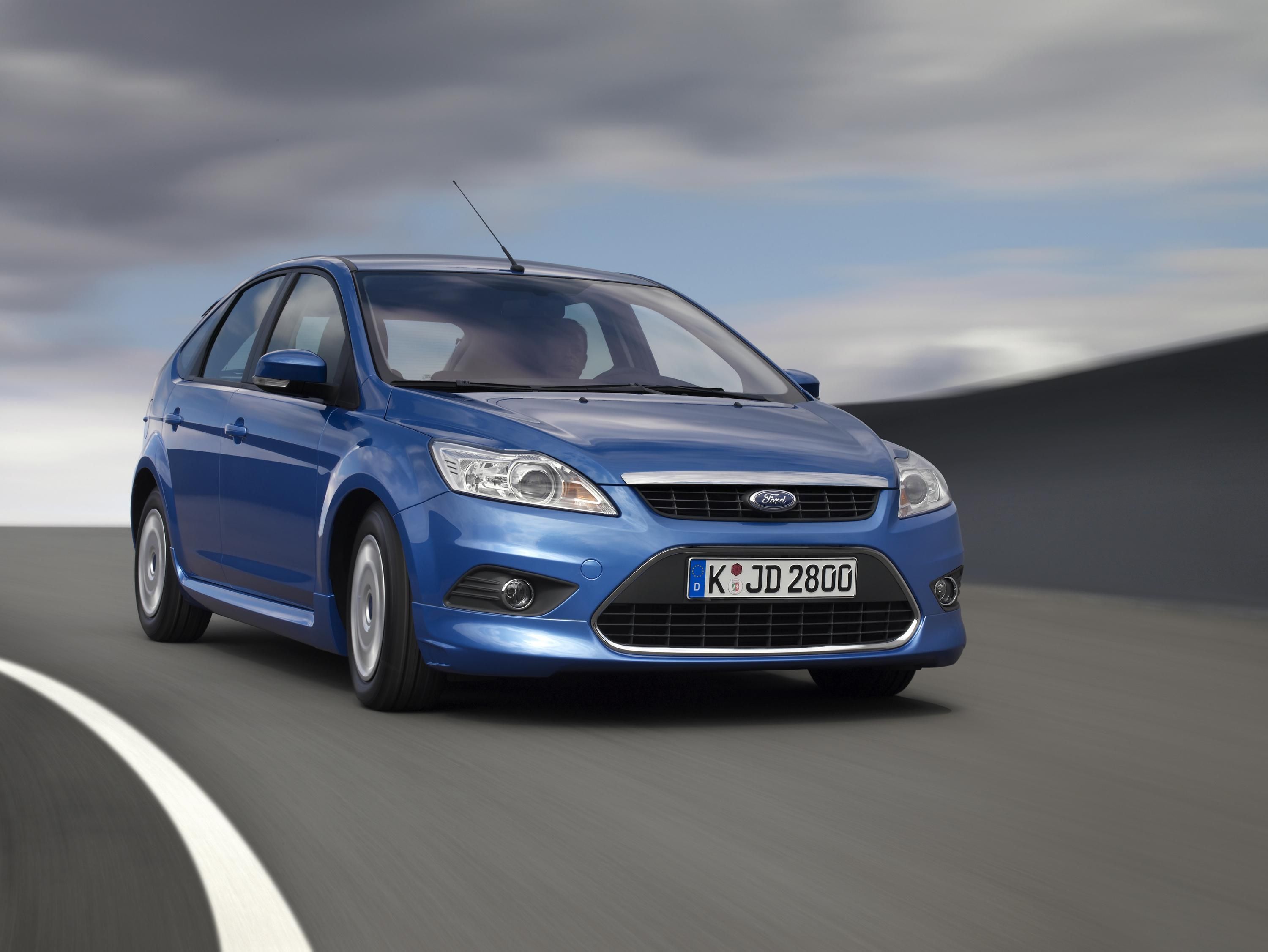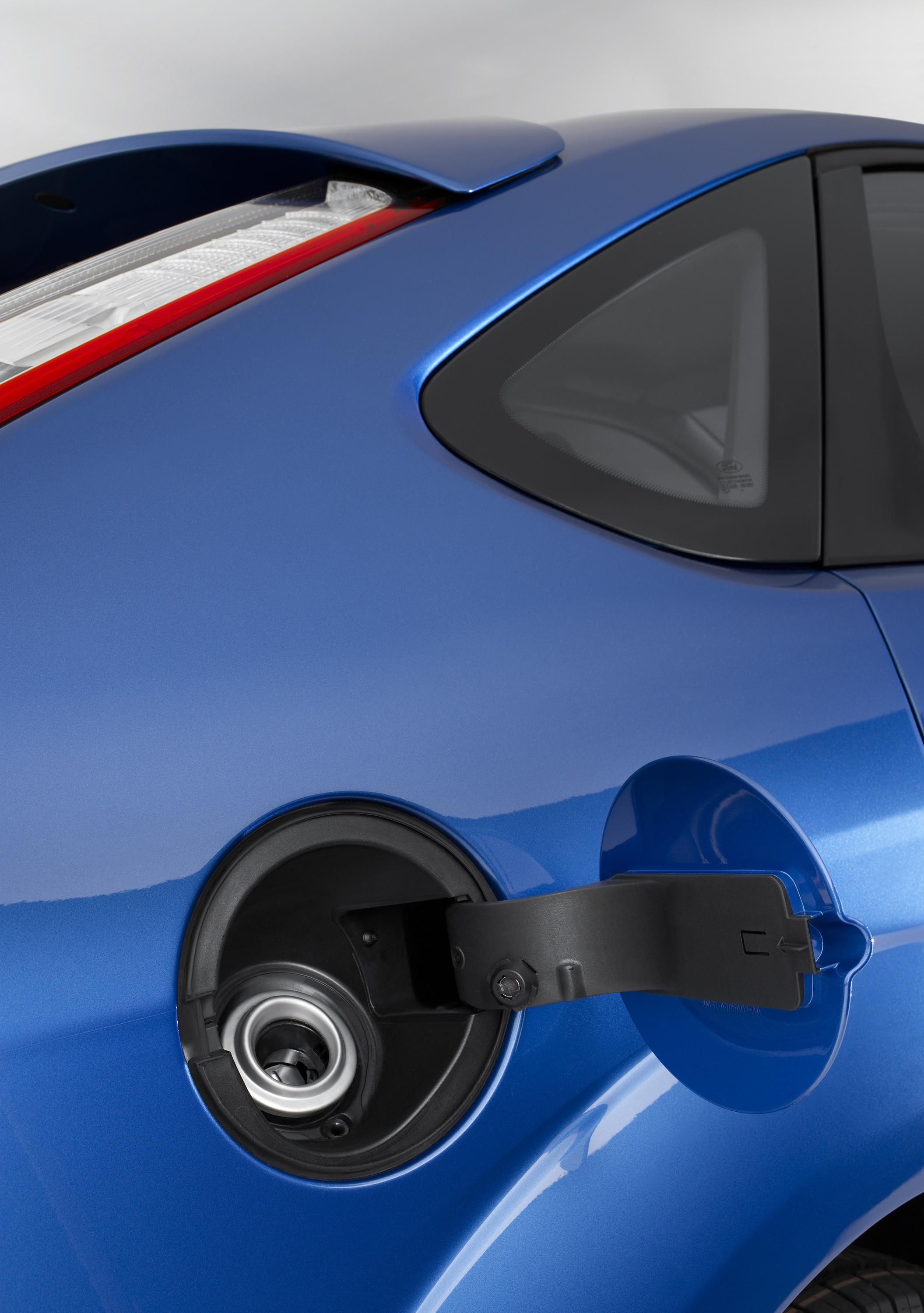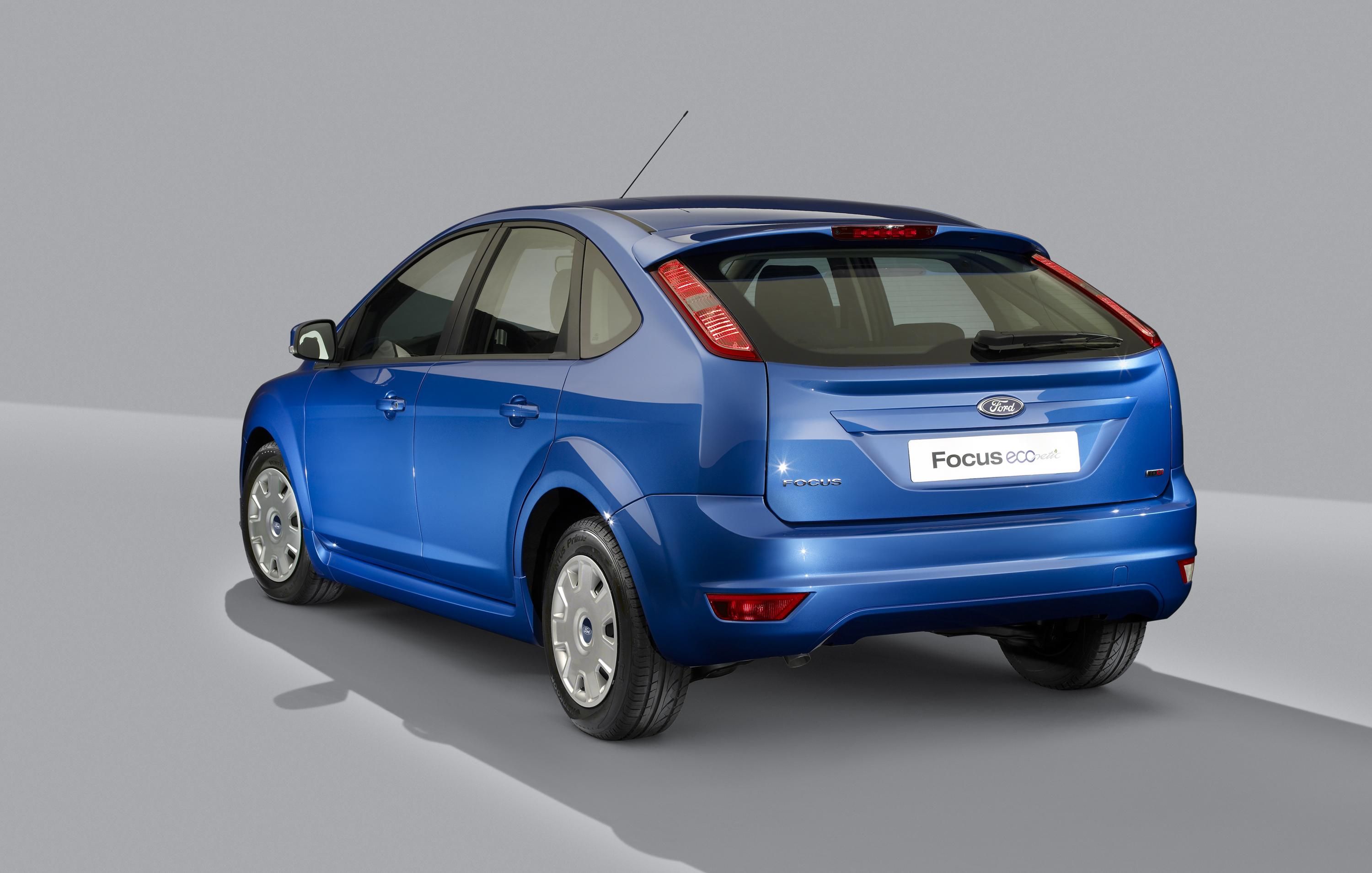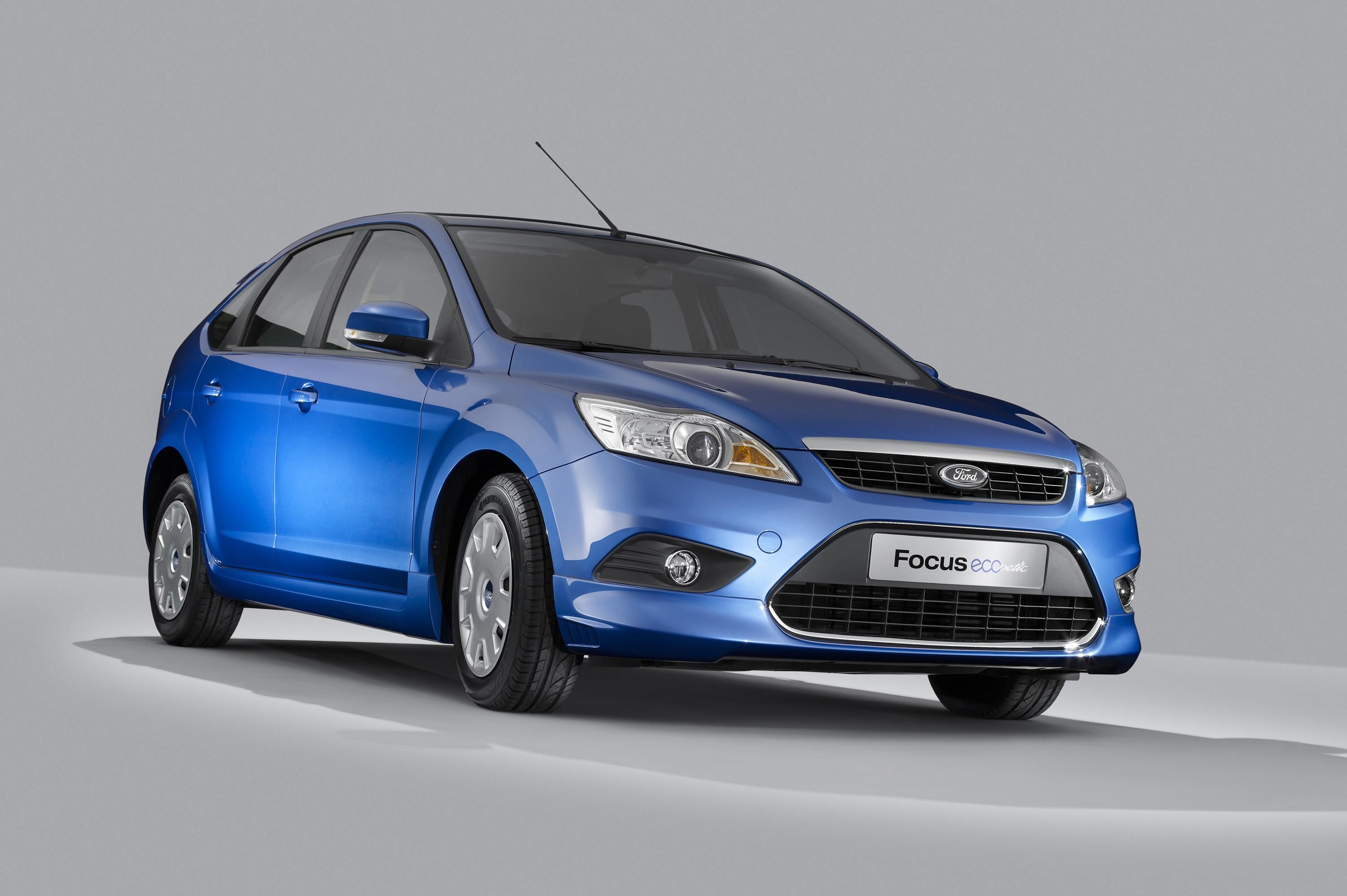Ford of Europe is offering its customers ultra-low CO2 alternatives for selected car lines with the launch of a new range of Ford ECOnetic models at the 2007 Frankfurt Motor Show. These cars will use a combination of the latest common-rail diesel powertrains together with other carefully-selected features engineered to reduce CO2 emissions to the absolute minimum.
The first to be launched by the end of 2007 will be the new Ford Focus ECOnetic, which promises to deliver best-in-class CO2 emissions for conventional powertrain technology at just 115g/km. The Ford ECOnetic will be extended in 2008 to include a sub-140 g/km CO2 Mondeo and a sub-100 g/km CO2 model in Ford's all-new B-car model range.
"Although all models in our current European portfolio are highly competitive in terms of CO2, we do know that more and more car buyers seek the lowest possible emissions as a key reason for purchase, and that they have an increasing range of such vehicles to choose from in the market," said John Fleming, Ford of Europe President and CEO. "By launching specific models, with dedicated Ford ECOnetic badging across our three key market segments, and which achieve ultra-low CO2 results, we will give a clear alternative to those customers who prioritise low emissions performance in their purchasing decision.
"By launching specific models, with dedicated Ford ECOnetic badging across our three key market segments, and which achieve ultra-low CO2 results, we will give a clear alternative to those customers who prioritise low emissions performance in their purchasing decision.
"We chose the Ford ECOnetic name because it links ecologically friendly technology to our kinetic design 'energy in motion' philosophy for both driving quality and emotional styling," Fleming added. "Above all, it assures our customers that these models will not sacrifice any of the driving dynamic qualities they have come to expect from Ford, even though ultra-low emissions have been prioritised."
New Ford Focus ECOnetic: Class Leading Emissions
The first vehicle to benefit will be the newly redesigned Ford Focus, the company's most popular model.
The Ford Focus ECOnetic will be launched as an integral part of the new Focus range and go into production towards the end of 2007, with vehicles will be available across Europe from early 2008.
The Focus ECOnetic will demonstrate that very favourable fuel consumption levels and significantly reduced CO2 emissions can both be achieved using conventional drive technology, coupled with a clever combination of individual, fuel-saving measures.
The new Ford Focus ECOnetic, powered by the highly efficient 109PS, 1.6-litre Duratorq TDCi engine with standard Diesel Particulate Filter, delivers an average fuel consumption of just 4.3 l/100km, which corresponds to an average CO2 emission of only 115g/km.
"The challenge for the engineering team was to deliver the maximum reduction in CO2 using available and affordable techologies," said Gunnar Herrmann, Ford's Vehicle Line Director for medium cars. "The result of this detailed work is both a class-leading result for a vehicle with state-of-the-art conventional power train technology, and some useful learnings that we can also apply to all diesel models in the Focus range over time." Using the already very economical regular 109 PS version with Diesel Particulate Filter as a base, the starting point in achieving such values was to reduce drive resistances. To improve aerodynamics, the vehicle was lowered by 10 millimetres at the front and 8 millimetres at the back. An aerodynamics kit is standard, consisting of a modified front bumper skirt and rocker claddings and a rear spoiler. To further improve the aerodynamics, the outer areas of the lower grille were given blanking plates on the inside. In combination with 195/65R15 tyres, a very good coefficient of drag (cd) of 0.31 is achieved.
Using the already very economical regular 109 PS version with Diesel Particulate Filter as a base, the starting point in achieving such values was to reduce drive resistances. To improve aerodynamics, the vehicle was lowered by 10 millimetres at the front and 8 millimetres at the back. An aerodynamics kit is standard, consisting of a modified front bumper skirt and rocker claddings and a rear spoiler. To further improve the aerodynamics, the outer areas of the lower grille were given blanking plates on the inside. In combination with 195/65R15 tyres, a very good coefficient of drag (cd) of 0.31 is achieved.
A further measure to reduce driving resistance also being used for the first time in the Ford Focus ECOnetic is the introduction of new low-viscosity transmission oil developed by Ford's fuel partner BP. Under testing, the efficiency benefits were found to be so significant that this new BP transmission oil is to be introduced across other Ford products in the C and CD segments.
Mondeo and New Small Ford to Follow in 2008
The Ford ECOnetic range will be extended in 2008 to include Ford's volume sellers in the highly competitive CD and B segments.
The distinctively styled new Ford Mondeo range will see the addition of a Ford ECOnetic model that is targeting sub-140 g/km CO2 with Diesel Particulate Filter.
A preview model for the Ford Mondeo ECOnetic is being shown at the 2007 Frankfurt Motor Show. It is equipped with a 2.0-litre Duratorq TDCi engine, delivering 115 PS (85 kW) with a 6-speed manual transmission and a diesel particulate filter. Generic measures to achieve the low CO2 emission target are an engine re-calibration, lowered suspension, low rolling resistance tyres, and aerodynamic improvement like grille blanking inserts. In addition, changed ratios of the transmission and the new low viscosity transmission oil contribute to this vehicle emitting less than 140 g/km CO2 on average.
Joining the Mondeo and Focus ECOnetic models later in 2008 will be a sub-100 g/km CO2 derivative of Ford of Europe's all-new replacement for the Ford Fiesta in the B segment.
"We believe that whether customers want a larger or smaller vehicle, they should have the opportunity to choose an affordable low-CO2 model, and that is why our engineers are working hard to deliver as soon as possible a new Mondeo ECOnetic as well as a version of our all-new small car range, the styling for which is suggested in the exciting Ford Verve Concept at Frankfurt," Fleming added.
As with the New Ford Focus ECOnetic, both of these new models are expected to deliver average CO2 emissions and fuel economy results that are amongst the best-in-class for vehicles using conventional technologies.
Customer Choice
In adding the new Ford ECOnetic diesel derivatives to its extensive product line-up, the company will offer customers across Europe a minimum of eight affordable choices for environmentally friendly cars by the end of 2008 – three Ford ECOnetics, and five Ford Flexifuel cars.
Ford of Europe is a leader in Flexifuel technology, which uses re-generative energy sources produced from renewable biomass. From early 2008, Ford will offer one of the broadest ranges of Flexifuel models in Europe, as it expands to include versions of the new Ford Mondeo, the Ford S-MAX and the Ford Galaxy in addition to the existing Ford C-MAX and new Ford Focus Flexifuel models. All of Ford's Flexifuel vehicles can be fuelled with bio-ethanol E85 (a blend of 85 per cent bio-ethanol and 15 per cent petrol), or on petrol, or on any mixture of both fuels in one tank, as an alternative to conventional petrol technology only.
All of Ford's Flexifuel vehicles can be fuelled with bio-ethanol E85 (a blend of 85 per cent bio-ethanol and 15 per cent petrol), or on petrol, or on any mixture of both fuels in one tank, as an alternative to conventional petrol technology only.
The combined use of bio-ethanol as a fuel and Ford's Flexifuel technology can reduce total life cycle CO2 (greenhouse) emissions by between 30 per cent and 80 per cent, without compromise to performance and driving quality.
Ford also offers selected models converted to run on LPG (Liquified Petroleum Gas) and CNG (Compressed Natural Gas). These models are available in a number of European countries, including Germany and Austria, where the infrastructure is available to support customers who choose this option.
"Whichever model our customers choose, Ford ECOnetic, Flexifuel, or, where available, LPG or CNG derivatives, can be assured of affordable, practical, low-CO2 technologies that will also retain our trademark qualities of excellent driving dynamics and dependability throughout the lifetime of the vehicle," Fleming said.
"There is no single catch-all solution on the horizon to make mobility more sustainable, but Ford is committed to continue working on a portfolio of environmentally advanced vehicles and technologies to maintain momentum. The Ford ECOnetic range takes us another step along this journey, and will make our portfolio even broader," he added.

